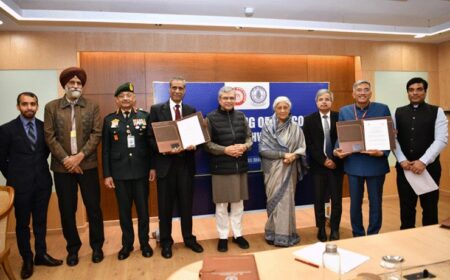Apeksha Gupta, Head of Academics (Research Scholar), Cargomen Logistics, shares insights into her unexpected foray into logistics, driven by curiosity and a quest for adventure, and her dedication to innovation within the dynamic industry.

Proposes tailored leadership programs and partnerships to engage more women
Apeksha Gupta’s entry into the logistics realm unfolded unexpectedly. Following her master’s degree, she found herself drawn to the field despite her initial unfamiliarity. Intrigued by its dynamic nature and potential for innovation, Gupta embraced logistics as a path filled with adventure and opportunity. Her decision was fueled by curiosity and a desire for remarkable experiences, leading her to dedicate herself to the demanding yet fascinating world of logistics.
Logistics endeavours
Throughout her logistics career, Gupta faced numerous challenges, from the absence of career guidance post-graduation to navigating fluctuating company needs and gender disparities. Despite these hurdles, she honed her skills in supplier management and export processes. Gupta’s achievements include authoring books, mentoring, and conducting research, all aimed at advancing the logistics domain. With a steadfast commitment to growth, she now pursues a Ph.D., eager to make further impactful contributions to the field.
Vision
In her role as a logistics academician, Gupta closely monitors the dynamic landscape of India’s logistics sector. She identifies crucial trends such as infrastructure upgrades, technological integration, burgeoning e-commerce platforms, and a growing emphasis on sustainability. She views these developments as fertile ground for innovation and expansion within the industry. However, she emphasises the need for collaborative efforts in research, education, and policy implementation to fully capitalise on the potential of these trends and drive sustainable growth in the logistics sector.
Empowering women
Apeksha Gupta advocates for proactive measures within the logistics sector to promote and support the professional growth of women. She suggests innovative approaches, such as customised leadership initiatives and collaborations with educational bodies, to attract more women to the field. Gupta also emphasises leveraging technology for mentorship and bolstering women’s advancement through STEM education. Inclusive recruitment practices and community engagement are highlighted as key strategies to foster a more diverse and inclusive workforce, recognising and amplifying women’s contributions in logistics.
Gender forward
Gupta envisions a transformative future for gender equality within Indian logistics, foreseeing initiatives that empower women across various levels. Companies like Amazon and Flipkart are championing female representation in warehouses and leadership roles, emphasising safety and expertise. Automation and programs like Mahindra Logistics Udaan offer support, while legislative reforms such as the Maternity Benefit Act ensure workplace inclusivity. Scholarships, mentorship, and knowledge-sharing initiatives further drive gender diversity, underscoring the need for grassroots efforts to combat entrenched biases. Through education, advocacy, and collaboration, Gupta strives to create an industry where women thrive.











